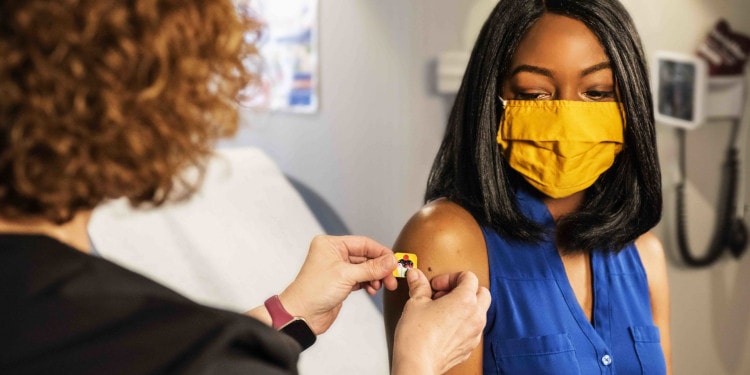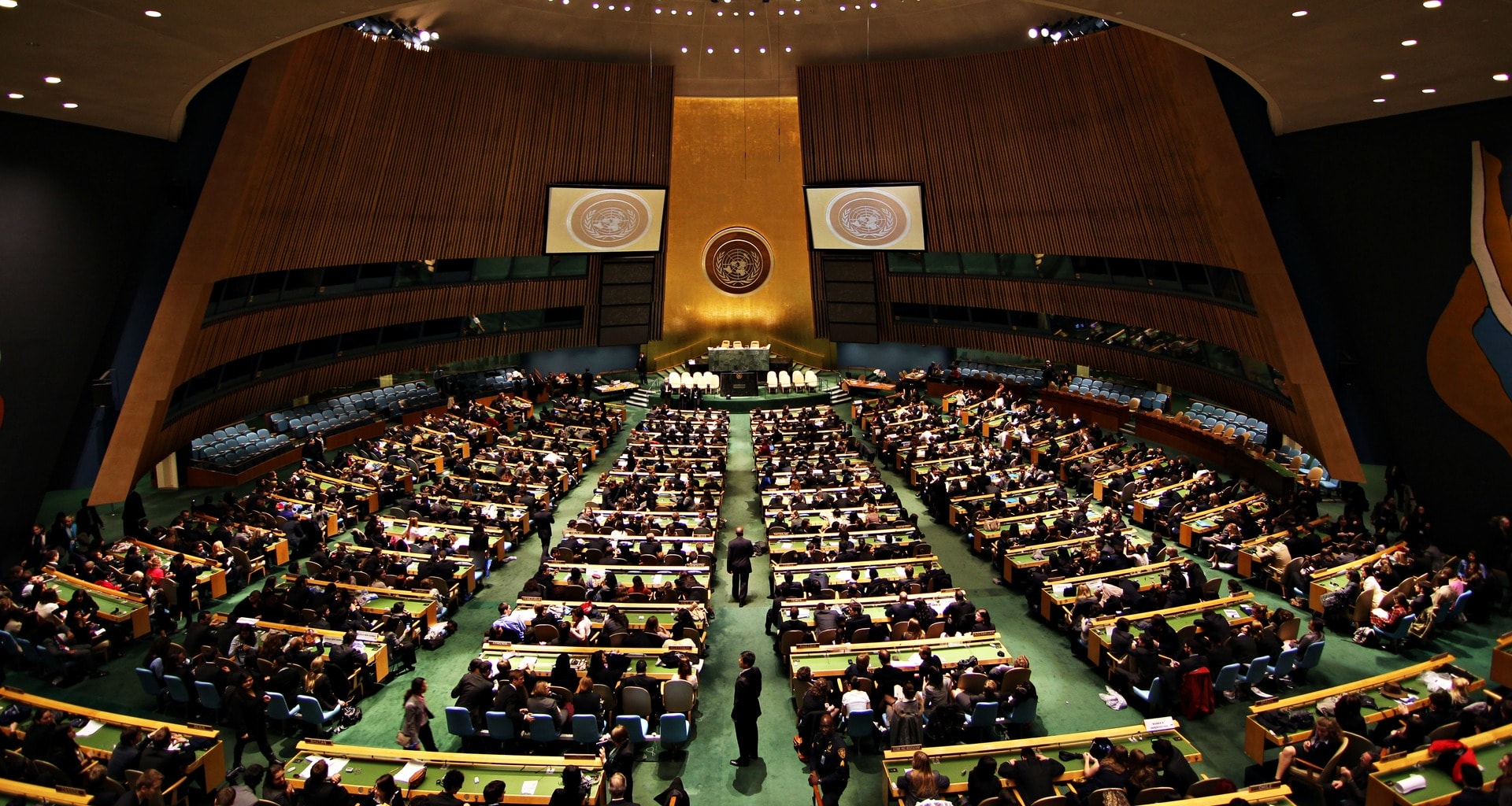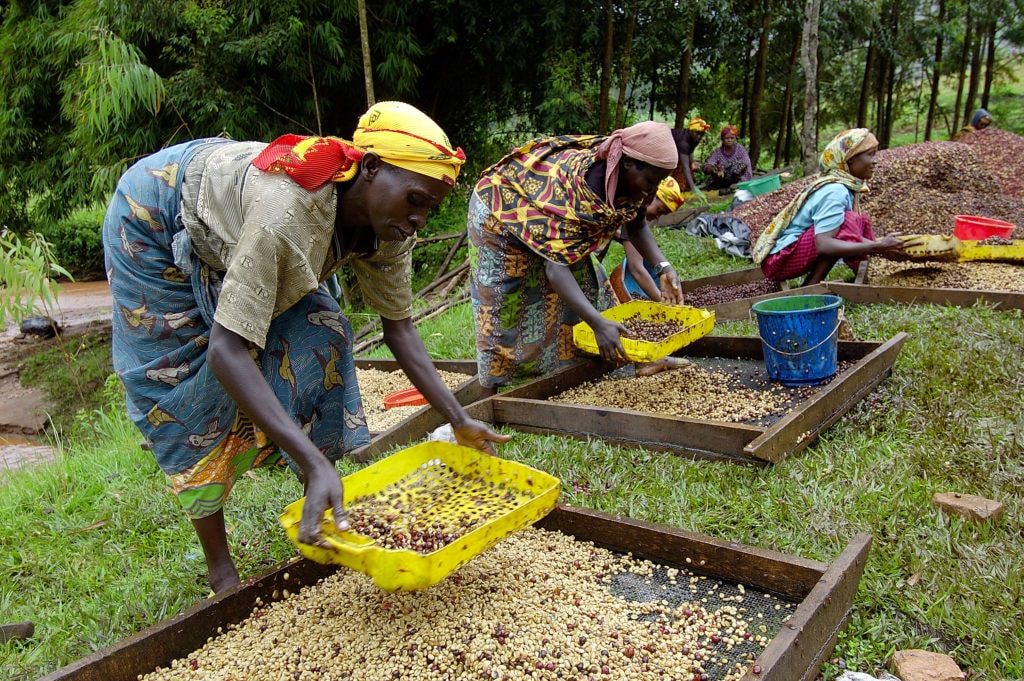As countries globally are rolling out COVID-19 vaccines, concerns of inequity in vaccine access are high: In particular, gender equality commitments are absent from health sector policy responses to pandemic.
Launching today, on World Health Day, a leading global health research partnership has reported new findings showing that national governments globally have failed to account for an essential aspect of equity — that of gender — across all areas of their COVID-19 health policies, including vaccination.
The findings by the three research organisations — Global Health 50/50, housed at University College London (UCL), the African Population and Health Research Center, and the International Center for Research on Women in India — are published in the new Sex, Gender and COVID-19 Health Policy Portal.
The portal collates and reviews more than 400 national COVID-19 health policy extracts from 76 countries across all regions and income groups. Policies are collected under six key areas derived from the WHO pandemic response recommendations:
- vaccination,
- public health messaging,
- clinical management,
- protection of healthcare workers,
- disease surveillance, and
- maintenance of essential health services.
Despite repeated calls from the World Health Organization and other leading global bodies on the need for gender-responsive COVID-19 health policies, the Policy Portal finds little evidence that sex or gender have been considered in policies that directly impact people’s health outcomes — with 91% of policies found to have no mention of gender. Among over 450 policies from 76 countries reviewed, one-third make specific commitments to ensuring equity while just one in seven reference human rights.
The lead Global Health 50/50 researcher on the project, Mireille Evagora-Campbell, said:
“Despite evidence that past pandemics have been gendered, and early data suggesting suggesting that COVID-19 would too be a gendered pandemic, the Health Policy Portal reveals that gender-blind health policy responses are deep-rooted and pervasive. While it is, at this stage, impossible to measure the direct health consequences that this gender-blindness has likely contributed to — including preventable illness, long-term health complications and lives lost – there are clear commitments that countries should adopt in their policies in order to more effectively, and more equitably, protect the health of all people.”
The Sex, Gender and COVID-19 Health Policy Portal, which offers the most comprehensive review of the integration of sex and gender into national COVID-19 health policies reveals a lack of attention to gender, and specifically:
- Among 388 policies (excluding surveillance policies, which were assessed differently), just 9% were found to address the role of gender in driving health outcomes — ranging from 6% of clinical guidelines and health worker protection guidance to 12% of public health messaging policies;
- Fewer than one-third of policies identified the population beneficiaries (men, women and/or transgender people) of the policy action (143 out of 458). Most of the policies that identified a specific population were focused on women’s health, and specifically maternal health. A small number of policies (13) mentioned interventions targeting men, and only one policy mentioned transgender people;
- A majority of vaccine policies (72%) were found to make a commitment to equity and try and identify priority vaccination groups — however, only a small proportion of policies contain any explicit equity commitments (31%) or human rights commitments (17%);
- Despite continued calls for sex-disaggregated data, including at least two United Nations General Assembly resolutions, just 20% of countries had national COVID-19 surveillance policies that referenced sex as a key indicator in reporting and analysis.
The failure to prioritise gender, equity and human rights in these health policies has sparked concern among research and health experts that pandemic planning, recovery and vaccination programmes will be less effective at addressing the health impacts of the pandemic.
Related Articles: Health Is Wealth – and Sustainable Development | One Health for One Planet: How to Address 21st Century Education Challenges
Among the experts who reviewed the findings, here are some notable comments:
Dr Yogan Pillay, Country Director of South Africa and Senior Global Director for Universal Health Coverage at Clinton Health Access Initiative, said:
“Guaranteeing equitable access to disease prevention and treatment for all genders is fundamental to universal health coverage. It is dismaying to see that so many countries, which have committed to universal health coverage as signatories of the United Nations 2030 Agenda, have not made gender a priority in their COVID-19 policies. The finding, however, that many national vaccine policies commit to equity is promising – countries should extend this commitment across their pandemic responses.”
Indeed, as mentioned above, fully 72% of the countries surveyed were found to do so – but general commitment is not the same as applying specific policies that actuate change.
Helen Clark, former Prime Minister of New Zealand and Global Health 50/50 Advisor, stated:
“The pandemic has exposed gender, ethnic, socioeconomic and many other inequalities across our societies. One would have hoped that the collective response to it would have had an equity focus, but the GH5050 Health Policy Portal reveals that this has not been the case. In the midst of this pandemic, and in response to those diseases with pandemic potential which will surely threaten in future, I urge policy makers to heed the findings and ensure that they commit to gender equality and to equality in general across their pandemic control policies.”
Both Dr Ravi Verma, Asia Regional Director, International Center for Research on Women and Dr Catherine Kyobutungi, Executive Director, African Population and Health Research Center were shocked to find that health policies are generally gender-blind and that the pandemic had no impact on this “blindness”.
Dr. Ravi stated: “In the absence of a gender lens to the pandemic recovery, the vulnerable remain unreached, and policy responses continue to perpetuate inequities despite good intentions. This must be rectified, and the portal provides us the right evidence to push for responsive policies.” And Dr. Catherine Kyobutungi lamented that: “A year into a pandemic, it is disappointing to see a business as usual approach to policy making knowing the differential impacts COVID-19 has on women and men and other categorizations. We hope that this Portal will be a catalyst for policy makers, activists and communities to advocate for, and develop gender-responsive COVID-19 policies.”
The partnership also hosts the world’s largest tracker of sex-disaggregated data on COVID-19, which for more than a year, has demonstrated differential health impacts of COVID-19 on men and women. Although there is some variation among countries, in general men are less likely than women to be vaccinated or tested for COVID-19, but more likely to be hospitalised, and more likely to die from the virus.
— —
The above information was provided to Impakter by the Sex, Gender and COVID-19 Project which results from a collaboration of leading global health research bodies: Global Health 50/50 (GH5050), which is housed within University College London, the Washington-based International Center for Research on Women (ICRW)’s regional office in Delhi and the African Population and Health Research Centre (APHRC) in Kenya.
The link to the new Policy Portal is: https://globalhealth5050.org/covid-policy-portal
Editor’s Note: The opinions expressed here by Impakter.com columnists are their own, not those of Impakter.com. — In the Featured Photo: Health care provider and patient. Featured Photo Credit: CDC.









